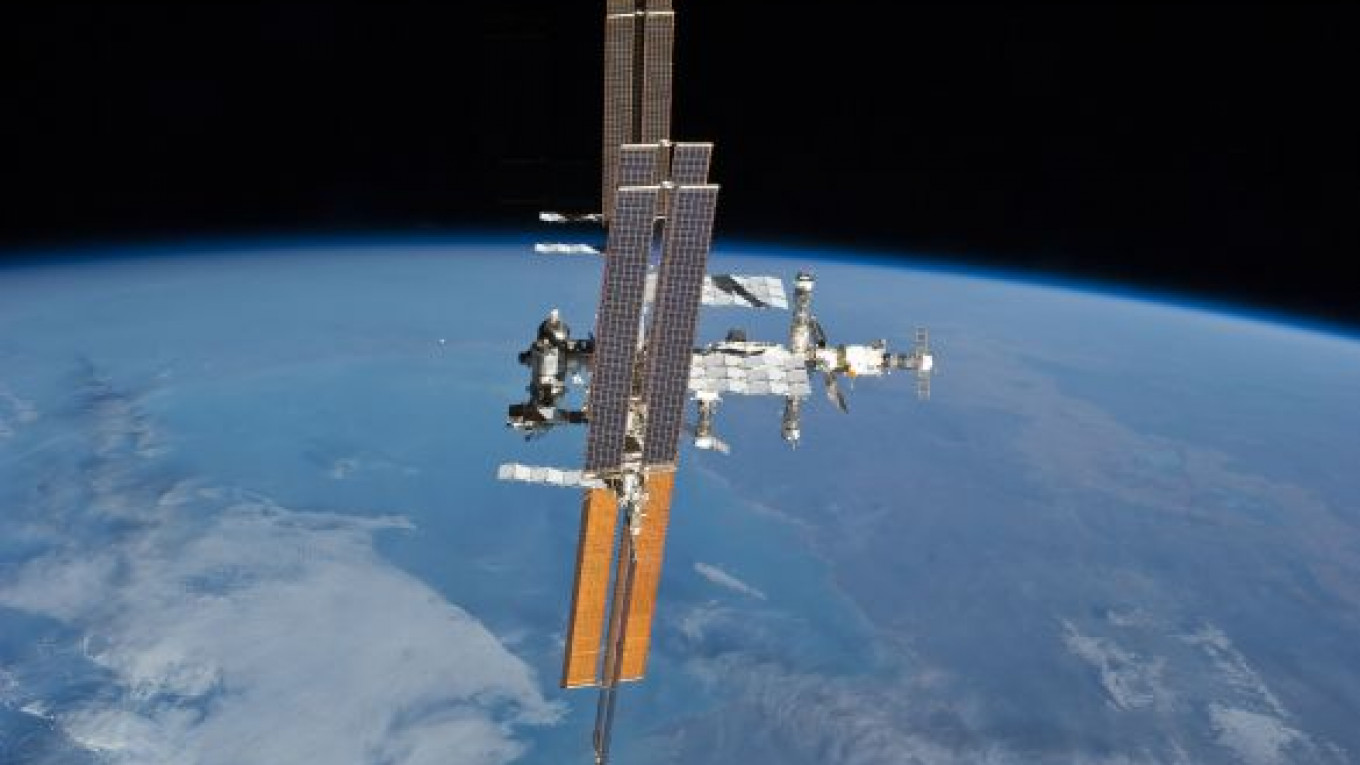CAPE CANAVERAL, Florida — A pair of spacewalking cosmonauts floated outside the International Space Station on Wednesday to prepare the orbital outpost for upcoming Russian renovations.
The work follows NASA's completion of the United States' part of the $100 billion complex, a project that also includes Europe, Japan and Canada.
The U.S. space agency retired its shuttle fleet last month after 37 flights to build and equip the station 350 kilometers above Earth.
Cosmonauts Sergei Volkov and Alexander Samokutyayev floated outside the station's Pirs airlock at 14:50 GMT to set up an antenna for a high-speed laser communications system, deploy a small educational satellite and carry out other tasks.
Their six-hour job list had included the relocation of a telescoping extension boom currently mounted on the Pirs module, which is scheduled to be detached from the station next year.
In place of the 10-year-old Pirs, Russia plans to install a new combination airlock-research laboratory module slated for launch in December 2012.
To free up the new module's docking port, the 3.5-ton Pirs will be removed and driven into the atmosphere for incineration by a Russian Progress spacecraft.
But a myriad of problems put the spacewalkers behind schedule and flight controllers decided to postpone the boom's relocation.
The trouble began with the cosmonauts' first task, which was to release a 26-kilogram amateur radio satellite called Arissat-1, a prototype for future educational programs. It holds radio messages marking this year's 50th anniversary of the launch of the first spaceman, Soviet cosmonaut Yury Gagarin. It also has a beacon for tracking Morse code and cameras for transmitting Earth views, as well as a student experiment to measure atmospheric pressure.
The spacewalkers and ground control teams noticed one of the satellite's two antennas was missing, delaying its release.
"It appears the antenna was not attached or something may have happened to it," said NASA commentator Josh Byerly.
After a few hours of discussions, program managers decided to proceed with Arissat's deployment despite the impairment, which will cut in half the amount of available communications during the mission.
The other alternative was to try to fix the satellite on the station, delaying its release for at least six months when the next spacewalk is scheduled.
Arissat is a joint project of the Radio Amateur Satellite Corp., the Amateur Radio on ISS project, NASA and Russia's Energia.
The spacewalkers also ran into problems with cables for Russia's laser communications system, intended to provide high-speed transmissions at up to 100 megabytes a second to Earth from Russian science experiments.
The antenna's cables turned out to be a bit short, causing some additional work for the cosmonauts to get them to attach properly.
(Reuters, AP)
A Message from The Moscow Times:
Dear readers,
We are facing unprecedented challenges. Russia's Prosecutor General's Office has designated The Moscow Times as an "undesirable" organization, criminalizing our work and putting our staff at risk of prosecution. This follows our earlier unjust labeling as a "foreign agent."
These actions are direct attempts to silence independent journalism in Russia. The authorities claim our work "discredits the decisions of the Russian leadership." We see things differently: we strive to provide accurate, unbiased reporting on Russia.
We, the journalists of The Moscow Times, refuse to be silenced. But to continue our work, we need your help.
Your support, no matter how small, makes a world of difference. If you can, please support us monthly starting from just $2. It's quick to set up, and every contribution makes a significant impact.
By supporting The Moscow Times, you're defending open, independent journalism in the face of repression. Thank you for standing with us.
Remind me later.






